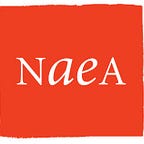Call for Papers Issue 19: Co-Creation
Editorial Board Members Daniela Fifi, Ed.D; Alison Heney, Ph.D; Kelly McKay, Ph.D, and Callie Smith, Ph.D
In this nineteenth (19th) issue of Viewfinder, we seek abstracts and proposals, which will focus on Co-creation in Museum Education Practice. We view co-creation as a practice firmly established in the concept of community and as a means of decolonizing museums, mainly when it involves amplifying voices often excluded inside these institutions.
Decolonizing a museum involves expanding or dismantling the established artistic canon, challenging practices rooted in white supremacy culture, and allowing those whose culture produced the artworks to have a say in their interpretation and storytelling. Decolonization in museums involves advocating for narratives that have been historically neglected and assuring their accessibility to a broader audience. This is a fundamental principle in museum education, which aims to provide our audiences with a comprehensive understanding from many perspectives. Therefore, the practices of decolonization in the museum space are at the core of museum education and actively involve co-creation to develop narratives, co-curatorial decisions, and educational initiatives.
The activity of co-creation and the methodologies of achieving it — that is, collaboration and community cooperation — offer opportunities to share skills and resources, include varied perspectives, connect across boundaries, and provide spaces for collective knowledge building. These practices emphasize a communal approach to effectively incorporate marginalized voices into the museum. Therefore, community building and collaboration are at the core of co-creation in museum education practices. However, despite the successes of co-creation approaches in museums, they can also pose challenges in communication, decision-making, and prioritization.
As museum professionals invested in decolonizing their spaces through co-creation, which is aligned with social justice, we are interested in analyzing the generative potential of co-creation in museum education practices to support these efforts.
Viewfinder Issue 19 focuses on co-creation’s diverse challenges and successes in museum education practice. We encourage museum education professionals, researchers, scholars, and students of all levels to submit an abstract or proposal grounded in themes of co-creation in museum education as social justice/decolonizing tool by July 7, 2024.
Questions to consider :
We have intentionally made our central questions broad to appeal to various museum departments that may be involved in interdepartmental co-creation initiatives and projects.
- How have you successfully co-created museum education initiatives at your institution and how have they resulted in positive transformational decolonization practices? For example, this can be between community partners or across interdepartmental disciplines.
- How does co-creation unlock new potential for addressing social justice / decolonizing issues in museum education?
- What have been successful models for co-creation initiatives between educators and curators to develop effective and culturally responsive exhibition interpretation?
- How have you approached a community partnership with your institution that could serve as a best practice model for programs grounded in co-creation (collaborative approaches) ?
- Do you have a case study you’d like to share? Or a current challenge in museum education that would benefit from a creative collaboration with Viewfinder readership?
We welcome abstracts and proposals that address co-creative practices of all kinds, including but not limited to:
- Museum partnership initiatives: i.e., between educators and artists; museums and schools, classroom teachers and museum educators; museums and community organizations; educators and curators; education and social media, marketing, or communications.
- Collective bargaining efforts in museum education.
- Collaborative leadership initiatives in museum education.
- Collaborative problem-solving initiatives in museum education.
- Collective art-making educational initiatives in museum education.
- Collective digital partnerships or multimedia projects in museum education.
Your abstract or proposal submission should be 300 words or less. We are interested in both traditional, creative, and experimental formats for submissions, including but not limited to: academic articles; personal narratives and reflections; collaborative artworks; poetry; syllabi/lesson plans; interviews; exhibition or book reviews; audio/video pieces; you tell us! We want to support you and your vision. Find submission link here. Abstracts or project proposals are due July 7, 2024.
